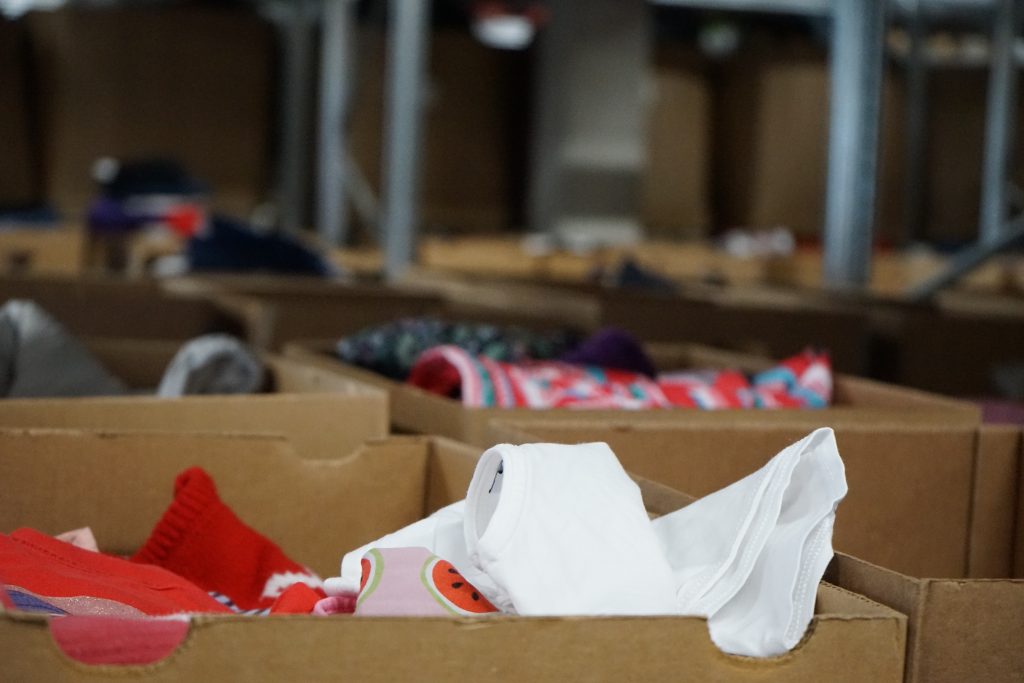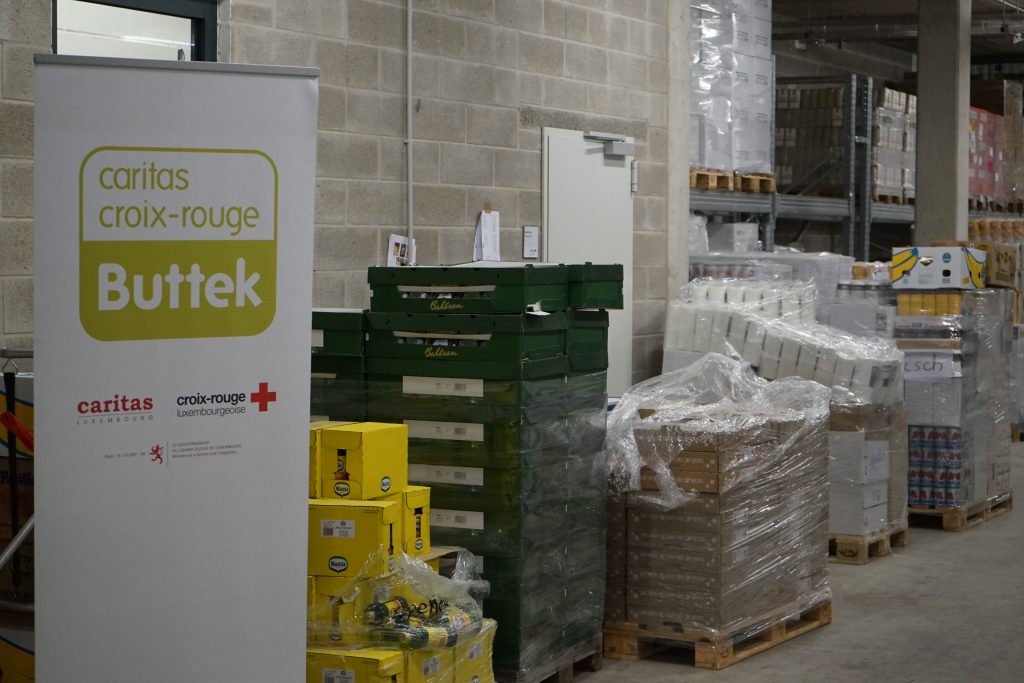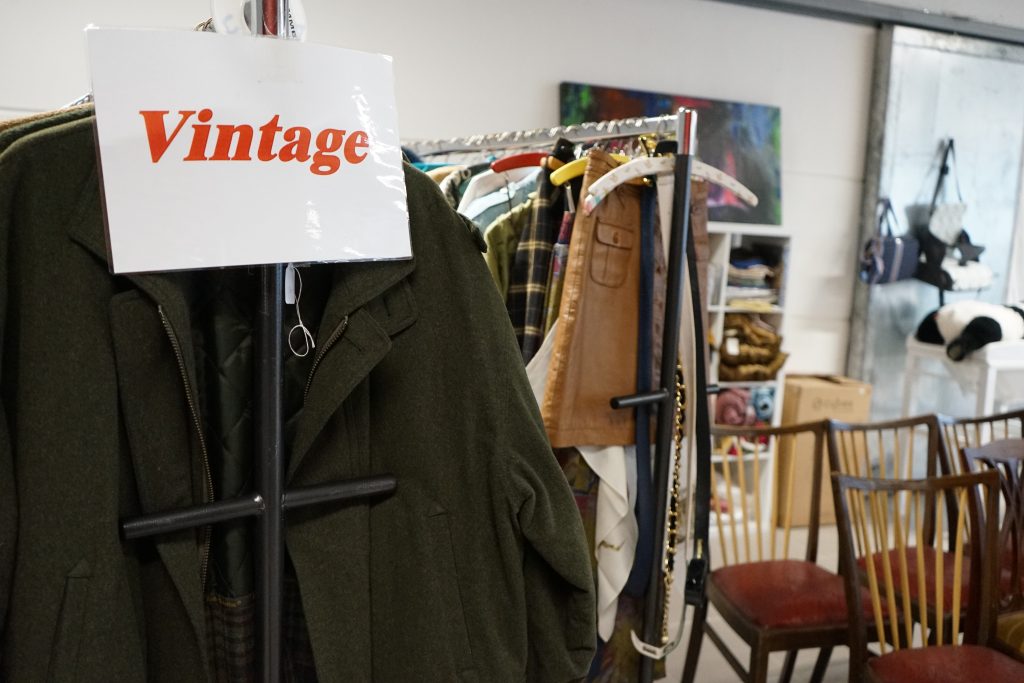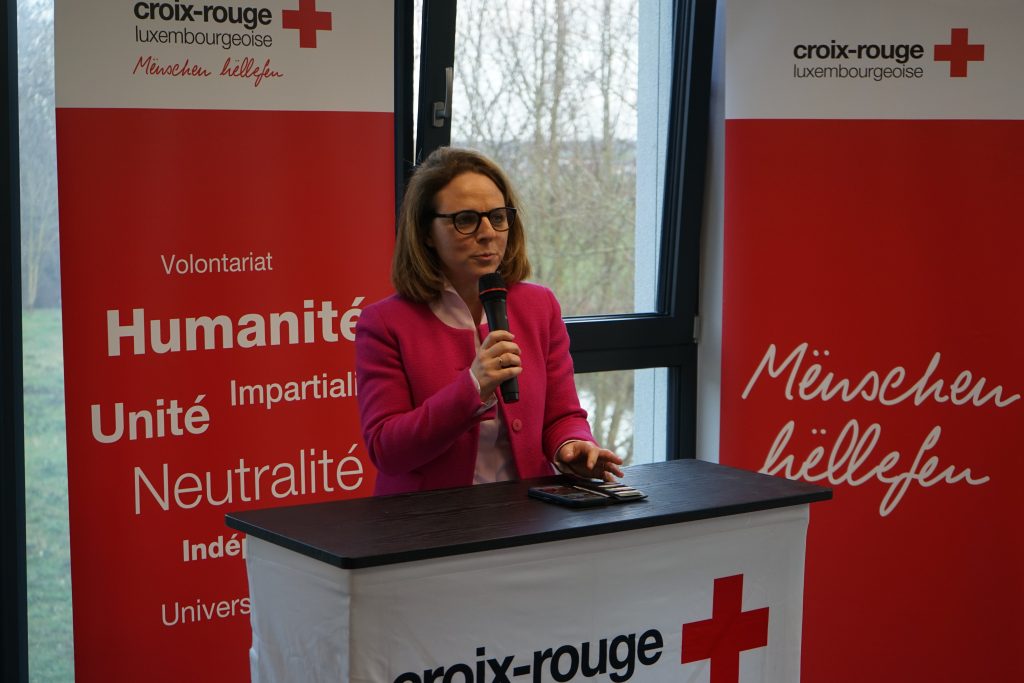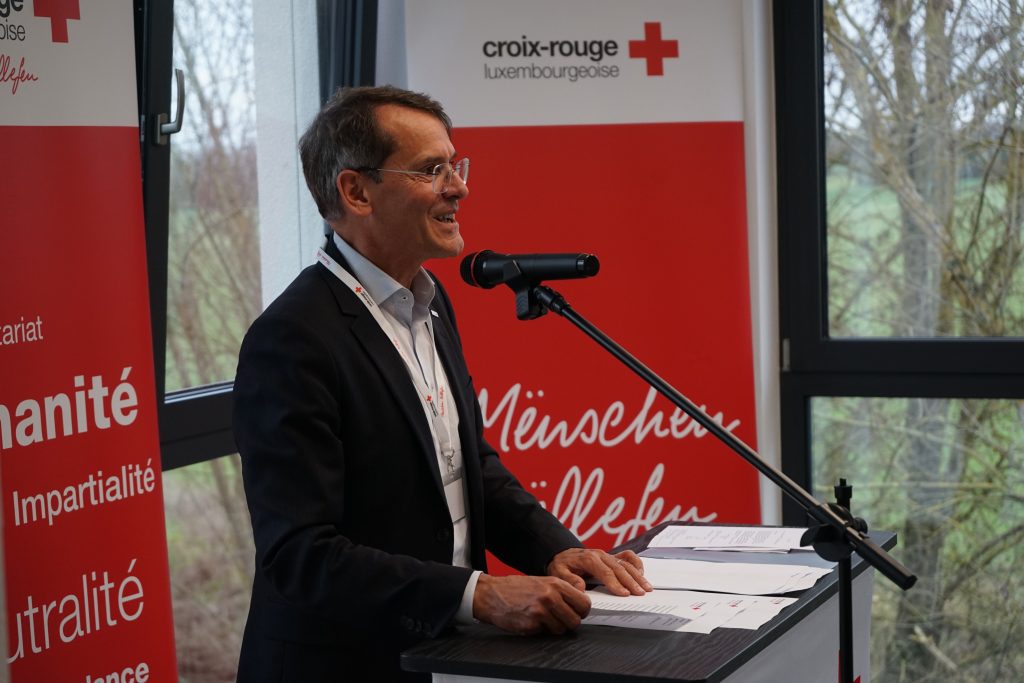02 February 2023

The new logistics centre of the Luxembourg Red Cross in Livange was officially inaugurated on 1 February 2023 in the presence of Corinne Cahen, Minister for Family and Integration. This infrastructure is ideally located close to the highways and thus offers an efficient framework for the storage and distribution of food and clothes donations. Other technical activities that are not usually in direct contact with the beneficiaries but that need space for workshops, storage and administration are also located here.
The Red Cross bought a former furniture shop at the end of 2019 and renovated and transformed it in a functional way in order to accommodate, on 5600 square meters, the National Collection and Sorting Centre (CNCT) for clothes and shoe donations, the food logistics platform Spëndchen asbl, the second-hand shop Vintage Mo(o)d, the IT and technical departments of the Red Cross as well as the technical department of Caritas Luxembourg.
In total, about 80 volunteers and employees work in Livange. They are supported by more than 60 beneficiaries of social assistance who are integrated into various services through the TUC scheme.
“This new logistics centre will enable us to better help the most needy in our society. Our eight ‘Red Cross Buttek’ have to be delivered daily. The same applies to the four Caritas social grocery stores. This is the only way we can distribute fresh food that is close to its expiry date nationwide. And donated clothes also have to be sorted and washed before we hand them over to the recipients.”
Michel Simonis, Secretary General of the Luxembourg Red Cross
“It is our duty to support citizens who cannot afford to buy food in a supermarket or clothes in a shop. Human dignity is the most important thing and I am happy that the Luxembourg Red Cross and Caritas Luxembourg are joining forces to help people going through a very difficult phase of life.“
Corinne Cahen, Minister for Family and Integration
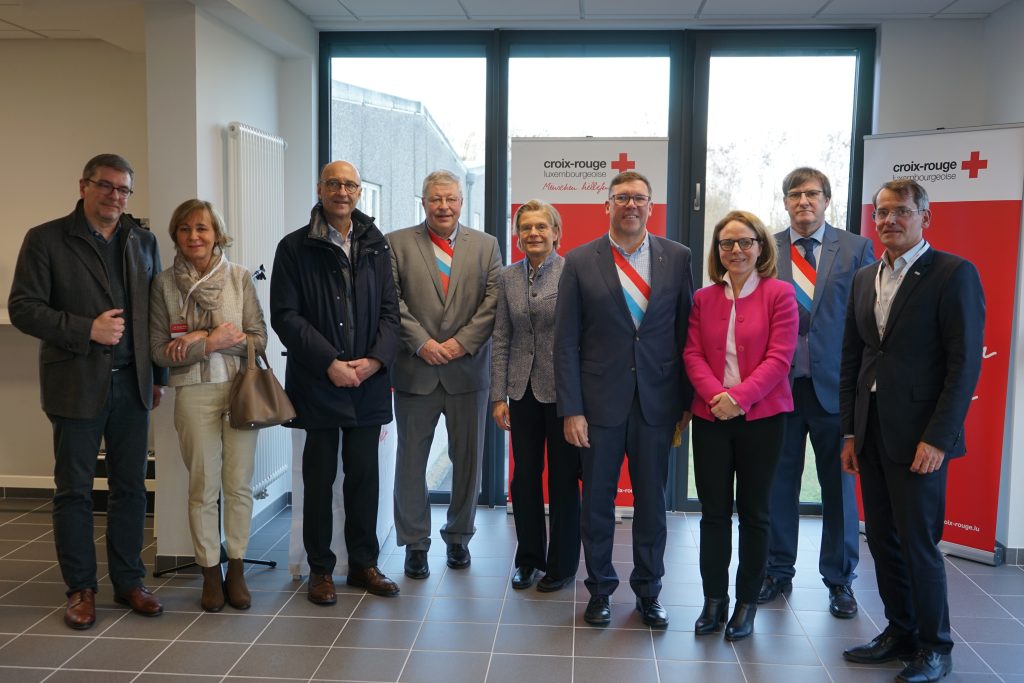
The National Collection and Sorting Centre for Clothing Donations was created in 2015 as a result of the merger of the existing activities of the Red Cross and Caritas Luxembourg. This collaboration allows us to respond to the urgent clothing needs of people such as refugees, migrants, homeless people as well as other people in need. Thanks to the solidarity of the population who donate clothes, the CNCT can avoid the destruction of used shoes and clothes and ensure a redistribution for adults, young people and children in need. In addition, the centre supplies the ‘Red Cross Vestaires’ and the ‘Caritas Kleederstuff’. This initiative is supported by the Ministry for Family, Integration and the Greater Region.
The Spëndchen logistics platform is a joint association created in 2009 by the Luxembourg Red Cross and Caritas Luxembourg in the context of the opening of the first social grocery stores. Its objective is to organise the purchase of food and non-food products that it sells and/or distributes via the social grocery stores. The platform is thus committed to fighting food waste. The 8 Red Cross Butteks and the 4 Caritas Butteks are so-called social grocery stores that offer low-income people food and hygiene products at prices that are a third or even a fifth lower for many (short-life) items than those usually charged in the usual stores. Buttek customers thus have access to fresh, quality products, while their purchasing power increases. In total, the Red Cross and Caritas Luxembourg run 12 such shops in the country. The Ministry for Family, Integration and the Greater Region supports the activities of the Spëndchen.
The Vintage Mo(o)d second-hand shop was established in 2016 by the Red Cross. It offers for sale second-hand clothes and everyday items that have been previously donated. The shop is open to all and encourages upcycling with the aim of generating income that will then be used to buy back clothes, such as underwear, that are still missing from the donations.
The Red Cross IT department also moved into the new premises and the Red Cross ‘Services Généraux’ moved into the new workshops in Livange as this became necessary due to the growth of the organisation.
